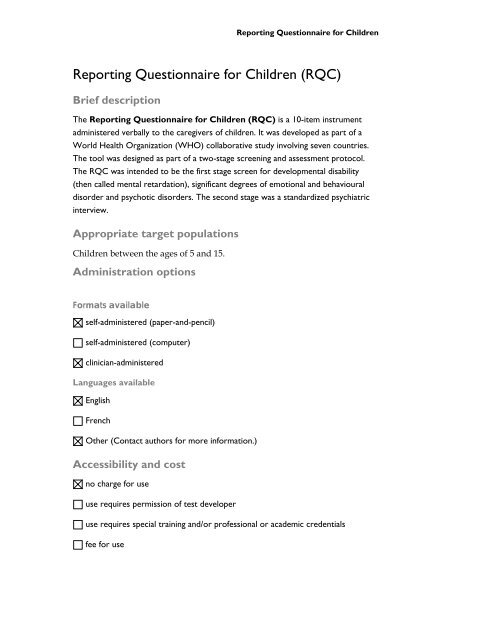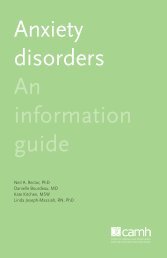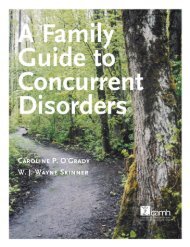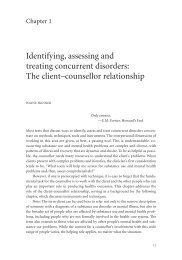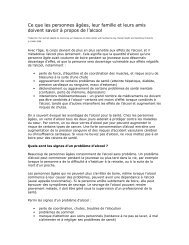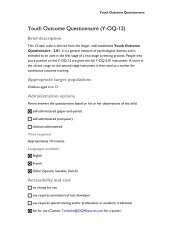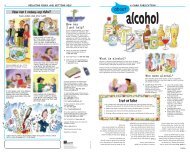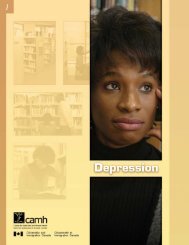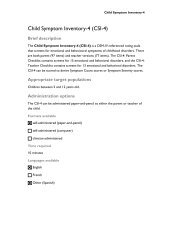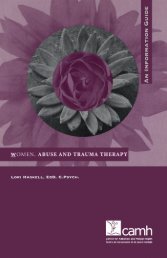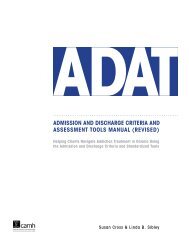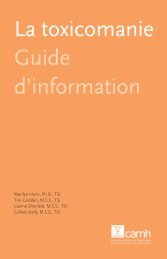Reporting Questionnaire for Children (RQC) - CAMH Knowledge ...
Reporting Questionnaire for Children (RQC) - CAMH Knowledge ...
Reporting Questionnaire for Children (RQC) - CAMH Knowledge ...
You also want an ePaper? Increase the reach of your titles
YUMPU automatically turns print PDFs into web optimized ePapers that Google loves.
<strong>Reporting</strong> <strong>Questionnaire</strong> <strong>for</strong> <strong>Children</strong><br />
<strong>Reporting</strong> <strong>Questionnaire</strong> <strong>for</strong> <strong>Children</strong> (<strong>RQC</strong>)<br />
Brief description<br />
The <strong>Reporting</strong> <strong>Questionnaire</strong> <strong>for</strong> <strong>Children</strong> (<strong>RQC</strong>) is a 10-item instrument<br />
administered verbally to the caregivers of children. It was developed as part of a<br />
World Health Organization (WHO) collaborative study involving seven countries.<br />
The tool was designed as part of a two-stage screening and assessment protocol.<br />
The <strong>RQC</strong> was intended to be the first stage screen <strong>for</strong> developmental disability<br />
(then called mental retardation), significant degrees of emotional and behavioural<br />
disorder and psychotic disorders. The second stage was a standardized psychiatric<br />
interview.<br />
Appropriate target populations<br />
<strong>Children</strong> between the ages of 5 and 15.<br />
Administration options<br />
Formats available<br />
self-administered (paper-and-pencil)<br />
self-administered (computer)<br />
clinician-administered<br />
Languages available<br />
English<br />
French<br />
Other (Contact authors <strong>for</strong> more in<strong>for</strong>mation.)<br />
Accessibility and cost<br />
no charge <strong>for</strong> use<br />
use requires permission of test developer<br />
use requires special training and/or professional or academic credentials<br />
fee <strong>for</strong> use
<strong>Reporting</strong> <strong>Questionnaire</strong> <strong>for</strong> <strong>Children</strong><br />
Where to access<br />
Instructions are available from the authors; requests should be addressed to the<br />
Division of Mental Health, World Health Organization, Geneva.<br />
Items are also available in: Giel, R., De Arango, M.V., Climent, C.E., Harding, T.W.,<br />
Ibrahim, H.H.A., Ladrigoignacio, L., et al. (1981). Childhood mental disorders in<br />
primary health care: results of observations in four developing countries. Pediatrics,<br />
68 (5), 677–683.<br />
Summary of test development data<br />
Quality of reporting<br />
Moderate, based on STARD rating (see Appendix, p. 76).<br />
Summary of validity and reliability data<br />
Low, largely on the basis of the limited application in North America, the time that<br />
has elapsed from the major validation studies and the lack of in<strong>for</strong>mation on test<br />
reliability.


